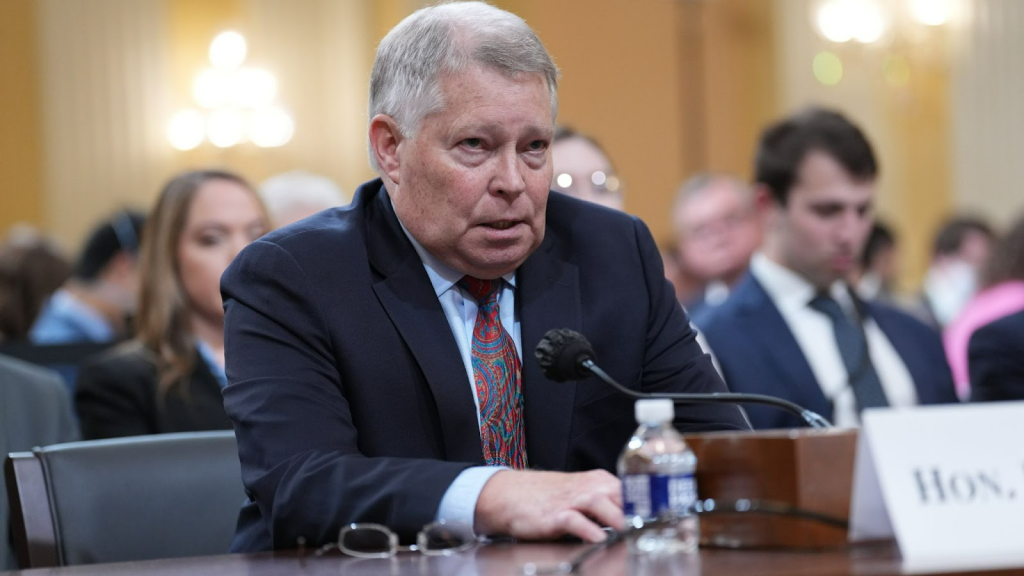
Former U.S. Appeals Court Judge J. Michael Luttig, known for his conservative stance, recently expressed his belief that U.S. Supreme Court justices should be held to higher standards of conduct than lower-ranked federal judges. Luttig’s remarks have added to the growing chorus calling for stricter ethics rules within the Supreme Court.
Luttig, who clerked for former Chief Justice Warren Burger at the Supreme Court and served on the 4th U.S. Circuit Court of Appeals for 15 years, emphasized the elevated position of the Supreme Court as the titular head of the judicial branch. In an interview with Reuters, he stated, “I believe that the expectations for Supreme Court justices are rightly higher than for any other public official in the land.”
His comments come at a time when there is increasing scrutiny of the ethics and conduct of Supreme Court justices. Luttig’s perspective aligns with the notion that the highest court in the land should adhere to a stricter code of ethics compared to other federal judges. Calls for enhanced ethics regulations for the Supreme Court have gained momentum in recent years.
Luttig refrained from commenting on the reporting by ProPublica, which investigated the relationship between U.S. Justice Clarence Thomas and wealthy Republican donor Harlan Crow. The report revealed details about real estate purchases and luxury travel funded by Crow, raising concerns about potential conflicts of interest for the justices and the court.
Time to fill a position? BCG Attorney Search can help you find the perfect candidate.
Unlike lower federal court judges, U.S. Supreme Court justices are not bound by a formal code of conduct. This has led to questions and criticism regarding the ethical guidelines guiding the justices’ behavior. The absence of a binding code of ethics for the Supreme Court has prompted discussions about the need for reform in this area.
Recognizing the significance of the matter, U.S. Senate Judiciary Committee Chairman Dick Durbin has scheduled a hearing on the topic for the following week. However, U.S. Supreme Court Chief Justice John Roberts declined Durbin’s invitation to testify at the hearing, underscoring the potential reluctance of the court to engage in discussions about ethics reform.
In response to Roberts’ letter, Durbin issued a statement expressing his determination to pursue Supreme Court ethics reform, regardless of the court’s participation. He emphasized the need for Congress to fulfill its responsibility in establishing an enforceable code of ethics for the Supreme Court, emphasizing that it is the only agency of the government lacking such a code.
The ongoing debate over Supreme Court ethics has generated significant interest and concern among legal experts, scholars, and the public. Critics argue that the absence of a formal ethics code undermines public trust and raises questions about the integrity of the court’s decisions. They contend that a robust and transparent set of ethical guidelines is crucial to maintain the court’s credibility and impartiality.
Supporters of reform assert that a comprehensive code of conduct for Supreme Court justices would address potential conflicts of interest, enhance transparency, and strengthen public confidence in the judicial system. They argue that ethical guidelines should encompass areas such as financial disclosures, recusal standards, and restrictions on extrajudicial activities.
While the Supreme Court has its own internal mechanisms to address ethical matters, they are largely self-regulatory and lack the same level of oversight and accountability as codes governing other branches of the government. Critics argue that self-regulation may not be sufficient, and an external framework is necessary to ensure that ethical standards are met consistently and impartially.
As the debate over Supreme Court ethics continues, it remains to be seen whether Congress will establish an enforceable code of ethics. The outcome of the scheduled hearing and subsequent deliberations will shape the future trajectory of this important issue. The discussions surrounding the need for stronger ethics rules within the Supreme Court reflect the ongoing pursuit of justice and accountability in the United States’ legal system.
















































